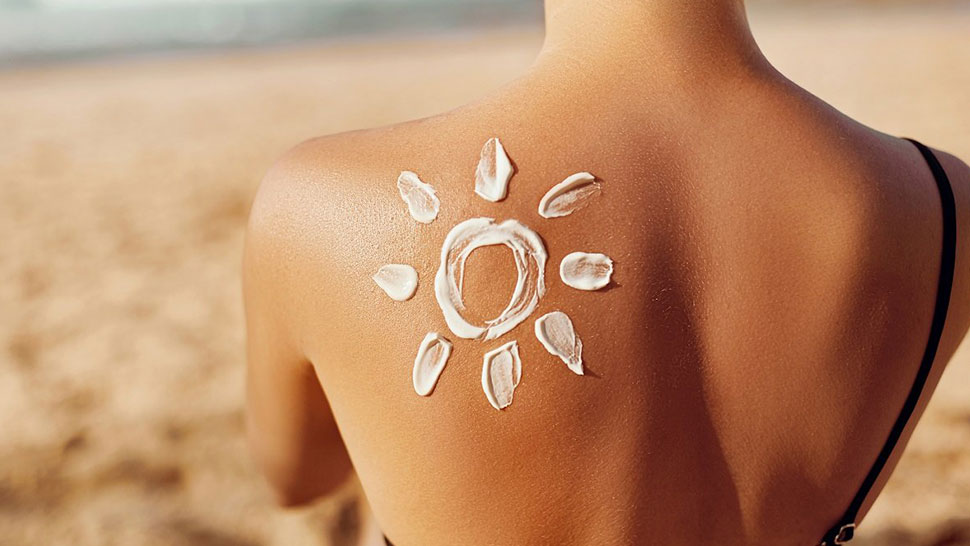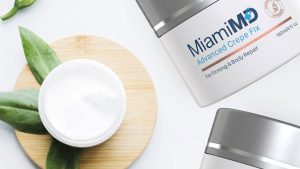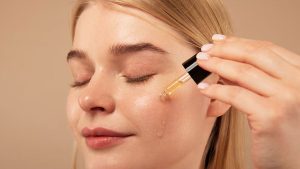Should We Really Be Using Sunscreen Every Day?

Sunscreen is often marketed as the ultimate skincare must-have, but is it really necessary to use it every single day? If you’ve ever found yourself skipping sunscreen on cloudy days, in winter, or when staying indoors, you’re not alone. Many people question the need for daily sunscreen use, especially when they don’t spend much time outdoors.
“Daily sunscreen use is a non-negotiable if you’re serious about protecting your skin against sun damage,” says Dr. Whitney Bowe, a board-certified dermatologist. “Even on cloudy days, up to 80% of the sun’s UV rays can reach your skin” (1).
We’ll address the hidden dangers of UV radiation, reveal the importance of wearing sunscreen, and tackle sunscreen benefits and myths.
What Is UV Radiation?
To understand why everyday sun protection is so important, let’s start with UV radiation. Ultraviolet (UV) radiation is a form of energy emitted by the sun.
It comes in three types — UVA, UVB, and UVC:
- UVA rays penetrate deep into the skin and are responsible for premature aging, such as wrinkles and fine lines.
- UVB rays cause sunburn and play a significant role in the development of skin cancer.
- UVC rays aren’t a concern since they are absorbed by the Earth’s atmosphere and don’t reach us.
Protecting your skin from UVA and UVB rays is essential to maintaining its health and appearance and warding off premature aging.
How Does Sunscreen Protect Against UV Damage?
Sunscreen acts as a protective barrier between your skin and the sun’s harmful rays. Here are two main types of sunscreen.
Chemical sunscreens absorb UV rays and convert them into heat, which is then released from the skin. They often feel lightweight and blend easily into the skin, making them a popular choice for everyday wear. However, some people with sensitive skin may find certain chemical filters irritating.
Mineral sunscreens sit on the surface of the skin and physically block UV rays using ingredients like zinc oxide or titanium dioxide. They are often favored by those with sensitive skin or allergies, as they are less likely to cause irritation.
“Think of sunscreen as the shield that prevents UV radiation from breaking down your skin’s collagen and DNA,” explains Dr. Joshua Zeichner, Director of Cosmetic and Clinical Research in Dermatology at Mount Sinai Hospital. “Without it, you’re leaving your skin vulnerable to both immediate and long-term damage” (2).
Why Should You Use Sunscreen Every Day?
If you’re still asking yourself, “Should you wear sunscreen every day?” the answer is a resounding yes — and for good reason.
Daily sunscreen use isn’t just about avoiding sunburns. It’s about protecting your skin from the invisible, long-term damage caused by UV radiation and aiding with skin cancer prevention. Whether the sun is shining brightly, hiding behind clouds, or filtered through your office window, its rays are constantly working against your skin.
Think of sunscreen as a year-round necessity and a cornerstone of healthy skin care — and anti-aging skincare routines. From preventing life-threatening skin cancers to keeping your skin youthful and radiant, the benefits of using sunscreen every single day are game-changing.
Here’s why including this simple step into your routine is one of the best decisions you can make for your skin:
Helps Prevent Skin Cancer
Skin cancer is the most common form of cancer in the United States, and UV exposure is the primary cause. Regular sunscreen use significantly reduces your risk of developing skin cancer.
“Daily sunscreen is one of the simplest and most effective ways to protect yourself against skin cancer,” says Dr. Elizabeth Hale, a spokesperson for The Skin Cancer Foundation. “It’s a small habit with potentially life-saving results” (3).
Prevents Premature Skin Aging
Beyond health concerns, sunscreen is a powerful anti-aging tool. UVA rays are notorious for breaking down collagen and elastin in the skin, leading to wrinkles, sagging, and discoloration.
According to a study published in Annals of Internal Medicine, participants who used sunscreen daily showed 24% less skin aging compared to those who didn’t (4).
Works Even on Cloudy Days and Indoors
It’s a common misconception that sunscreen is only necessary under direct sunlight. As mentioned earlier, UVA rays can penetrate clouds and windows, meaning your skin is at risk even when you’re indoors or during overcast weather.
Imagine UV rays as invisible attackers. They’re always there, even when you can’t see them. Sunscreen is your daily shield against sneaky indoor UV exposure, standing between your skin and the threat of constant damage.
What Are Common Concerns With Using Sunscreen Every Day?
While the benefits of sunscreen are clear, it’s natural to have questions or reservations about using it every single day.
After all, applying a product to your skin daily might raise concerns about its effects on your health, your body’s natural processes, or even the environment. These concerns have sparked plenty of debate, from worries about vitamin D absorption to the potential impact of certain ingredients.
However, here’s the good news: most of these issues have solutions or are based on common misconceptions. Let’s focus on a few of the most frequently asked questions and address the concerns holding you back from making sunscreen a daily habit.
Vitamin D Absorption
One of the most debated topics is whether sunscreen prevents your body from synthesizing vitamin D. While sunscreen does limit the skin’s ability to produce vitamin D, studies show that sufficient exposure can still occur through brief, incidental time outdoors.
“Vitamin D is crucial for bone health, but you don’t need to sacrifice your skin to get it,” explains Dr. Zeichner. “Instead, consider getting vitamin D from dietary sources or supplements.”
Chemical Exposure
Some people worry about the potential risks of chemical sunscreen ingredients, such as oxybenzone. While these concerns have led to stricter regulations, mineral-based sunscreens are an excellent alternative for those seeking a more natural option.
Mineral sunscreens with zinc oxide or titanium dioxide are safe and effective. They’re also less likely to irritate sensitive skin.
Environmental Impact
Certain sunscreen ingredients, like oxybenzone and octinoxate, have been linked to coral reef damage. As a result, many brands now offer reef-safe sunscreens that are free from harmful chemicals.
Reef-safe sunscreens not only protect your skin but also minimize harm to marine ecosystems. It’s a win-win for you and the environment.
How To Apply Sunscreen
Choosing the right sunscreen is only half the battle. And how you apply it can make or break its effectiveness.
Even the best sunscreen won’t do its job if it’s not applied correctly or in the right amount. Many people unknowingly leave their skin vulnerable by applying too little, missing key areas, or skipping reapplication altogether.
Think of sunscreen as your skin’s armor. Here’s how to ensure you’re getting maximum coverage and protection every day:
Apply to Sun-Exposed Areas
Focus on areas that are most exposed to the sun, including your face, neck, ears, and hands. Don’t forget less obvious spots like your scalp (if exposed) and the tops of your feet. Areas like your lips can also be vulnerable, so consider using a lip balm with SPF to keep them protected as well.
Be Gentle But Generous
Use about a nickel-sized amount of sunscreen for your face and at least a shot glass worth for your body. Most people don’t apply enough sunscreen, which compromises its effectiveness.
When in doubt, it’s better to use more than less to ensure full coverage and maximum protection.
Apply 15-30 Minutes Before Exposure
For optimal protection, apply sunscreen 15-30 minutes before heading outdoors. This allows the product to fully absorb or settle on your skin. This step is especially important for chemical sunscreens, as they need time to activate and create a barrier against UV rays.
Include at the End of Your Skincare Routine
Sunscreen should always be the final step in your morning skincare routine, applied after moisturizer and before makeup. If you’re using makeup with SPF, remember that it’s not a replacement for sunscreen. Layering both can give you added protection.
Reapplication Tips: Every Two Hours
Sunscreen wears off over time, especially if you’re swimming, sweating, or wiping your face. To stay protected, reapply every two hours or more frequently during these activities. Carrying a travel-sized sunscreen or using SPF sprays or powders can make reapplication easier when you’re on the go.
Wrapping Up
So, should you wear sunscreen every day? The answer is unequivocally yes. Whether it’s a sunny summer afternoon or a cloudy winter morning, your skin needs daily protection from UV radiation.
Harmful UV rays are always present, and their effects on your skin are cumulative over time, making sunscreen a non-negotiable part of any skincare routine.
Sunscreen is crucial for preventing skin cancer, premature aging, and sun damage. By wearing sunscreen daily, you’re protecting your skin’s health and preserving its natural beauty and resilience for years to come.
Sunscreen is one of the simplest and most effective steps you can take to care for your skin, no matter your age, lifestyle, or skin type. Make it a habit to apply sunscreen every morning, and you’ll be giving your skin the protection it deserves.
Sources:
- American Scientist. “Sunshine on a Cloudy Day.”
https://www.americanscientist.org/article/sunshine-on-a-cloudy-day - PubMed Central. “The impact of ultraviolet radiation on skin photoaging.”
https://pmc.ncbi.nlm.nih.gov/articles/PMC8597149/ - Harvard Health Publishing. “The science of sunscreen.”
https://www.health.harvard.edu/staying-healthy/the-science-of-sunscreen - CNN Health. “There’s proof: Sunscreen reduces skin aging.”
https://www.cnn.com/2013/06/04/health/sunscreen-aging/index.html





